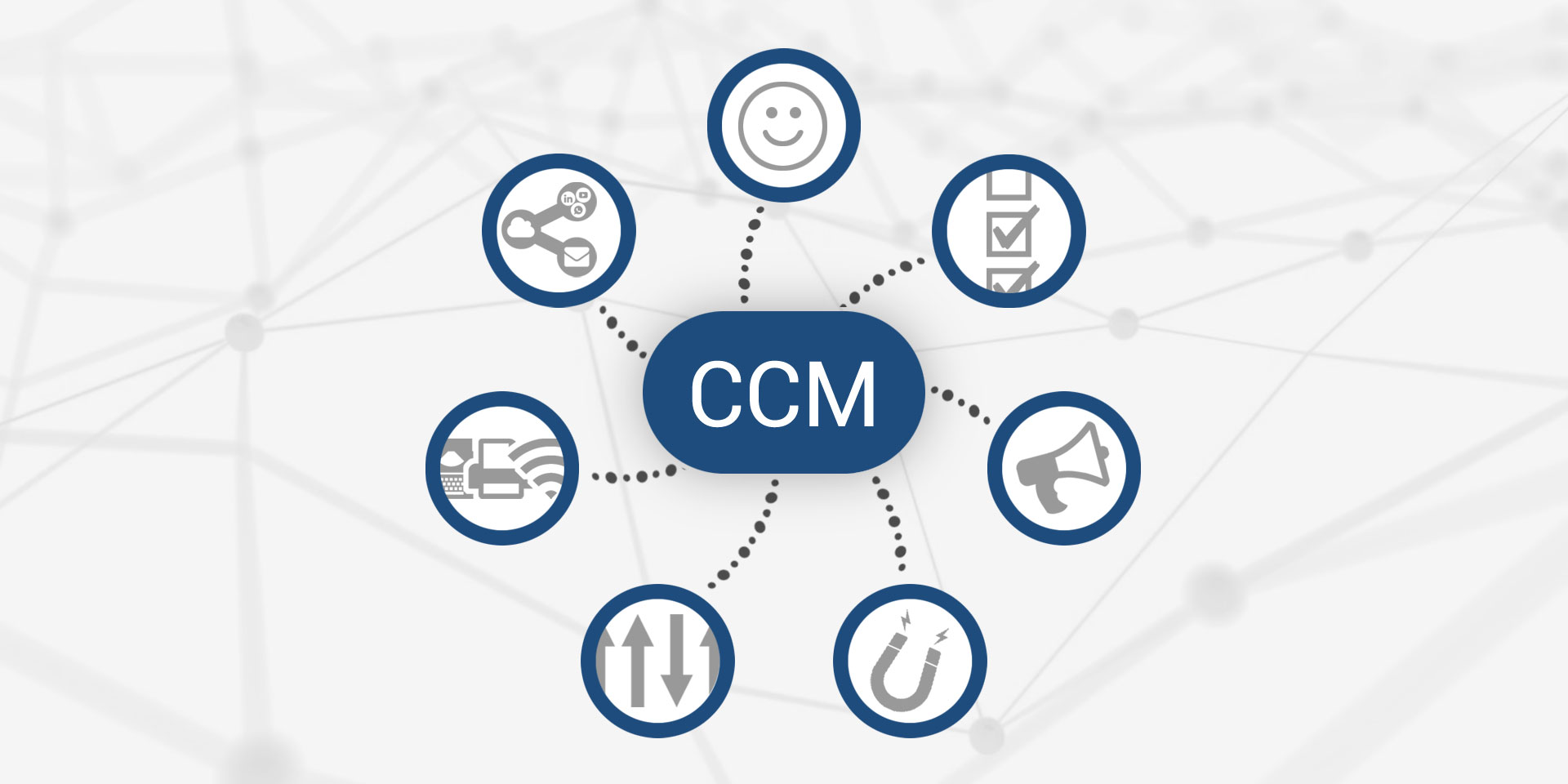The Power of Customer Communication Management in Shaping Customer Experience

Strong 8k brings an ultra-HD IPTV experience to your living room and your pocket.
In today’s fast-paced digital landscape, customer experience (CX) is the primary battleground for business differentiation. As organizations strive to deliver consistent, personalized, and seamless interactions, Customer Communication Management (CCM) emerges as a vital tool in shaping the overall customer journey. From onboarding to post-sale support, effective communication can significantly influence customer satisfaction, loyalty, and lifetime value.
What is Customer Communication Management (CCM)?
Customer Communication Management (CCM) refers to the strategy, and technology used by businesses to design, deliver, and manage customer interactions across multiple channels. These include emails, SMS, print documents, web portals, mobile apps, and more. CCM ensures that every touchpoint between the business and its customers is consistent, personalized, timely, and aligned with brand identity.
Key Components of CCM
Content Creation: Crafting messages that are clear, informative, and tailored to the recipient’s needs.
Omnichannel Delivery: Ensuring communications are accessible across all preferred customer channels.
Automation & Workflow: Automating repetitive communication tasks to ensure speed and accuracy.
Personalization: Leveraging data to tailor messages to each individual customer.
Compliance: Meeting legal, regulatory, and brand compliance requirements.
The Role of CCM in Customer Experience
Customer experience management is not limited to product quality or price—it’s deeply influenced by how, when, and where businesses communicate with customers. CCM directly impacts these dimensions and enhances CX in several ways.
1. Personalization at Scale
One of the most powerful aspects of CCM is its ability to personalize messages based on individual customer data. Whether it's addressing customers by name, referencing their purchase history, or tailoring offers to their preferences, personalization makes customers feel valued. A well-implemented CCM system pulls data from CRMs, ERPs, and other platforms to generate relevant and engaging communications at scale.
2. Omnichannel Consistency
Customers interact with businesses across various channels—email, SMS, chat, social media, print, and more. Disjointed messaging or inconsistent branding across these channels can harm the customer experience. CCM platforms ensure uniform messaging across all touchpoints, enhancing trust and reinforcing brand identity.
3. Timely and Proactive Communication
Proactive communication is a cornerstone of positive customer experiences. CCM systems automate routine communications like appointment reminders, invoice notifications, or service updates, ensuring customers receive timely and relevant information without delay. Proactive updates reduce friction, minimize customer anxiety, and show that the business values their time.
4. Reduced Errors and Faster Response Times
Manual communications are prone to human error and slow turnaround times. CCM solutions reduce these risks by standardizing templates and automating workflows. This not only increases operational efficiency but also ensures that customers receive accurate and professional communications, boosting their confidence in the brand.
5. Improved Engagement and Satisfaction
Engaging customers with relevant content in their preferred format and language increases satisfaction and loyalty. CCM tools allow businesses to design interactive and visually appealing communications, such as clickable documents or dynamic forms, which encourage deeper customer interaction and streamline business processes.
Real-World Use Cases of CCM in Enhancing CX
Financial Services
Banks and insurance companies rely heavily on CCM to send statements, policy documents, and regulatory updates. By personalizing these communications and offering digital access via portals or apps, financial institutions increase transparency and empower customers to manage their finances with confidence.
Healthcare
In the healthcare industry, CCM ensures timely delivery of appointment reminders, medical records, and billing information. By reducing wait times and improving patient communication, providers enhance the overall patient experience and satisfaction.
Utilities
Utility companies use CCM to notify customers about service outages, billing cycles, and energy-saving tips. Personalized consumption reports and real-time alerts help customers make informed decisions and feel in control of their usage.
E-commerce and Retail
Retailers use CCM to send personalized offers, order updates, and loyalty program notifications. With automated workflows, they can ensure customers stay engaged throughout the purchase journey, from browsing to post-purchase follow-up.
Benefits of Investing in a Robust CCM Strategy
Enhanced Brand Perception
Consistent, high-quality communications foster a professional image and enhance brand trust. Customers are more likely to stay loyal to a brand that communicates clearly, consistently, and empathetically.
Operational Efficiency
CCM reduces the manual effort required to generate and send communications, freeing up resources for more strategic tasks. Automation also reduces operational costs and minimizes errors.
Data-Driven Decision Making
Modern CCM systems provide analytics and insights into customer behavior, engagement rates, and communication preferences. This data helps businesses refine their communication strategies for maximum impact.
Better Compliance and Risk Management
With ever-evolving regulations like GDPR, HIPAA, and industry-specific compliance standards, managing risk is crucial. CCM platforms offer built-in compliance checks, version control, and audit trails to help businesses stay on the right side of the law.
Challenges in Implementing CCM (And How to Overcome Them)
Legacy Systems
Many businesses still rely on outdated communication systems that are not designed for personalization or multichannel delivery. Transitioning to a modern CCM platform can be complex, but integration middleware and phased rollouts can simplify the process.
Data Silos
Scattered customer data across departments can limit the effectiveness of CCM. Businesses should invest in data integration and establish a single source of truth through CRMs or Customer Data Platforms (CDPs).
Resistance to Change
Employees may resist new tools and processes. Effective training, internal communication, and leadership buy-in are crucial for successful CCM adoption.
Future Trends in Customer Communication Management
AI and Machine Learning
Artificial Intelligence is transforming CCM by enabling predictive analytics, natural language generation, and intelligent chatbots. These technologies will drive hyper-personalization and real-time engagement.
Interactive and Multimedia Communications
The future of CCM is interactive. From personalized videos to dynamic digital documents, businesses will increasingly adopt engaging formats that improve customer understanding and satisfaction.
Integration with Customer Experience Platforms
CCM is becoming an integral part of broader CX ecosystems. Tight integration with marketing automation, CRM, and customer support platforms will ensure a seamless flow of information and unified customer experiences.
Conclusion
Customer Communication Management is no longer just a backend operational tool—it is a strategic enabler of exceptional customer experience. By ensuring timely, relevant, and consistent interactions across all channels, CCM helps businesses build trust, improve satisfaction, and foster long-term relationships.
In a world where customer expectations are rising and attention spans are shrinking, mastering CCM is not just a competitive advantage—it’s a necessity. Companies that invest in a modern, agile, and customer-centric CCM strategy will be best positioned to thrive in the experience-driven economy.
Note: IndiBlogHub features both user-submitted and editorial content. We do not verify third-party contributions. Read our Disclaimer and Privacy Policyfor details.


